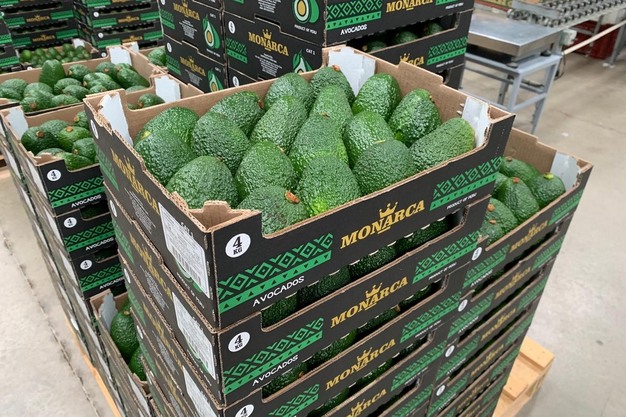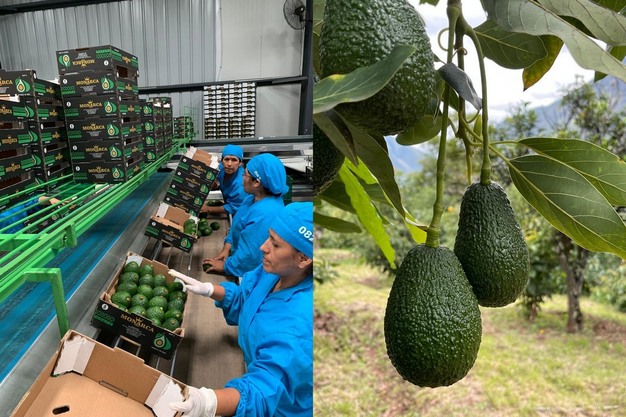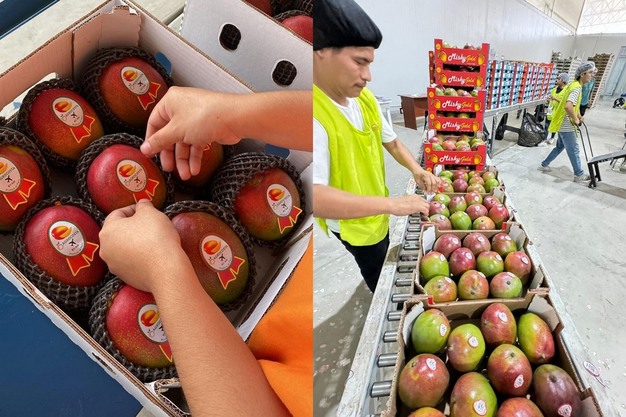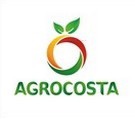Peru's latest fruit export season has been marked by a high international supply, pressured prices, and logistical challenges that have forced companies to adjust their business strategies. In the coming weeks, prices are expected to recover as exporters focus on diversifying markets, exploring new business formats, and enhancing cost efficiency to navigate a complex global scenario.
 © Agrocosta Perú
© Agrocosta Perú
In the case of Agrocosta, the impact has been significant during the avocado season, which saw a 30% increase in volumes from May to July, leading to an oversupply that pushed prices in Europe to historic lows of 5 to 6 euros per box. "Faced with this situation, we decided to reduce shipments at peak production and prioritize shipments in the final part of the season, just as prices began to recover. Currently, prices range between 9 and 10 euros. They are expected to reach 12 to 13 euros in the coming weeks," stated Jhonny Córdova, CEO of the company.
 © Agrocosta Perú
© Agrocosta Perú
Our primary target markets are Europe and the United States, but we also serve markets such as Korea, Japan, Canada, and Russia, which helps us spread risks amid fluctuations in supply and demand. An additional challenge this season has been the U.S. threat of increased tariffs on Peruvian avocado. To address this, we advanced shipments in the early months of the season and reduced dispatches in the second half, focusing on other destinations to lessen the impact.
 © Agrocosta Perú
© Agrocosta Perú
To remain competitive, the company works closely with its partner growers, who manage over 3,400 hectares of mango and avocado plantations. The strategy involves providing technical advice, training, and obtaining international certifications (such as GlobalGAP, Grasp, SMETA, Spring, Leaf Marque, and Rainforest Alliance), as well as operating its own infrastructure. This includes a packing plant in Piura capable of processing 500,000 kilos per day, which holds all necessary certifications, including BASC.
"Currently, we are preparing for the mango season that begins in November. Apparently, production will be lower than in the previous season," he said.
 © Agrocosta Perú
© Agrocosta Perú
Logistical costs remain a significant concern. "The lack of cold equipment and the increase in sea freight rates impact profitability, especially for products that operate with very tight margins, like mango," Córdova stated.
Agrocosta plans to enter the frozen fruit market with mangoes, avocados, blueberries, and strawberries, repurposing fruit that doesn't meet the criteria for the fresh market. Additionally, it aims to expand its product line to include blueberries, grapes, and lemons, starting in 2026.
"Anticipating international trade trends, safeguarding quality, and exploring new business opportunities are key to face a scenario of global oversupply and rising costs," he stressed.
 For more information:
For more information:
Jhonny Córdova
Agrocosta Peru
Tel. +51 968 192 653
Email: [email protected]
www.agrocostaperu.com
